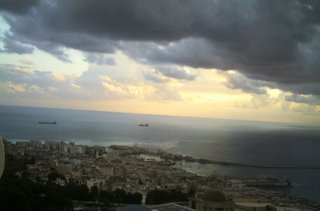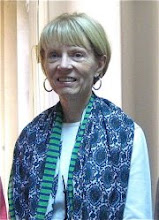Last Days of Ramadan
 Circumcision Ceremonies Sponsored on the Night of Power
Circumcision Ceremonies Sponsored on the Night of PowerOn the 27th day of Ramadan (October 20), known as Leilat El Qadr, when Muhammad received the first revelations of the Qur’an, organizations in many Algerian cities annually hold circumcision ceremonies for underprivileged children. In Tizi Ouzou (72 miles east of Algiers), for instance, the local government (la mairie) sponsored circumcision ceremonies and parties with well-known performers, complete with presents and new clothes, for 74 needy children from the surrounding commune. As of 2006, the surgical procedure must take place (usually the next day) in a hospital. The local committee of the Red Crescent also held a circumcision ceremony for 50 children (Liberté, 21 October 2006, p. 15). These are but two examples of the spirit of giving displayed during Ramadan and the efforts made to make sure all are able to meet the requirements of the faith, of which circumcision is one. Of course, for Muslims the importance of fasting is to direct their thoughts to the spiritual; and giving, especially to the less fortunate, is an important part of that.
Other Benevolent Acts of the Red Crescent
The Red Crescent provides many charitable programs to the poor, although still insufficient due to the increasing number of disadvantaged families, during the month of Ramadan. In the Tizi Ouzou area, known as the “hit parade” of unemployment and poverty, 1) the organization provided 31,000 meals at 12 sites in different communes of the wilaya in the first fifteen days of Ramadan. In addition, 15,000 meals were picked up by families and 14,000 served at soup kitchens. The latter are meant to serve transients; but due to the rise in poverty, many of these meals are taken home to needy families. 2) A second program provides packages of foodstuffs to hungry families, with the assistance of the national petroleum society, Sonatrach. 3) The third program is that involving circumcision, mentioned above. 4) Lastly, the Red Crescent organizes volunteers to visit the hospitalized, especially children, on the day of Aïd El Fitr. These visits provide support and comfort for the sick, whose relatives live far away and are not able to visit. Hospitalized children receive presents provided by benefactors on the day of the Aïd (La Tribune, 21 October 2006, p. 4).
Ramadanesque Nights/The Last 15 Days
Probably all you can compare the last days of Ramadan to in the West is Christmas. Excitement, the anticipation of the Aïd, overspending, the pull of children’s demands, the fever of last minute shopping, and the enjoyment of the season burst forth with more energy than at any other time of the year. And according to the newspaper, La Tribune, the lights of Algiers are burning brighter than they have for some time, signifying that most citizens have not been cowed by recent violent skirmishes tarnishing the image of the national pact of peace and reconciliation–at least not during the last ten to fifteen days of the month of Ramadan. Hardly has the sun set, the day of fasting come to a close, and the evening prayer (taraouih) ended, but the city streets are packed with people–succumbing to shopping fever in anticipation of the Aïd. Beginning about 8:30 PM, traffic jams are starting to develop near the city center. Families are emerging from their households, some for preconceived destinations, others to take a walk to digest the evening meal of the f’tour, usually substantial. One popular event is the Arab-Asian Exhibition held at the Expositions Palace of the Pins Maritimes. Here 50 exhibitors, representing 13 countries, are selling their wares, both affordable and exorbitant. At one stand, a crowd has gathered around Mourad Khan, the star of “Hidden Camera,” shown every day on ENTV (the national television station). After viewing the stands, visitors can buy a Syrian sandwich or falafels, prepared by skillful chefs on the spot. Oriental cakes are also for sale at a hefty price.
From the fair, strollers can head outside to wander Martyrs Square and Ben M’hidi Street. People are out strolling. The cafés are open. The aroma of mint tea and other delicacies tantalize your nostrils. The stores are crammed, with barely a space to work your way in. There are lines merely to request the price of an article. Children, not the parents, are choosing their outfits for the Aïd!
The imposing structure, the Grande Poste (Main Post Office, is luminous. Directly across from it is a sort-of outdoor cinema, actually a large screen mounted on the top of a truck, funded by Event Diffusion. I can see it parked in the square from my hotel window. Used from time to time for the last three years, this expedient allowed Algerians to view the last World Cup games, when ENTV lost the right to broadcast them. During Ramadan it’s usually the homeless and drifters who have time to watch its transmissions. Saturday, October 14, the Battle of Algiers was featured in homage to its Italian director, Gillo Pontecorvo, who had died the night before.
Couples leisurely walk on the prominent thoroughfare, Didouche Mourad. It’s one of the streets of Algiers with teahouses, where young lovers can meet or adolescent girls have a night out with their friends. Even there, the stores are packed. Children’s outfits are on display in almost every shop window. Some department stores have been converted to offer children’s clothing, just for the season. Entire outfits are now the fashion: jean suits, suede slacks with a pullover and matching vest, skirts and tops. Purchasing the outfit, the parents have then to buy shoes to go with it. The average price for a child’s outfit is $50.
From Didouche Mourad to Draria, passing by El Biar, the capital remains full of life. At 11:00 PM, grilled chicken and brochettes are available at small restaurants for purchase, with few takers. Wives are walking arm-in-arm with their husbands, window-shopping. Arridj Shop, a three-story department store, which opened a year ago in Draria, attracts many. Well planned, shoppers can buy almost everything they need in one stop: outfits for men, women, and children; shoes; kitchen utensils; bathroom supplies; toys. Its prices must be within reason, given the numerous families who depart laden with sacks filled with goods.
Then it’s midnight. The heart of the capital is about the only place that stays up late. In chic areas of the city, one may find tented orchestral presentations (kheima), which don’t lower their curtains until the morning prayer (s’hour). However, activity takes place within the walls of the pavilion. In the popular quarters of Bab El Oued, families are heading toward home and shops have closed their doors, although sales continue–on the sidewalks. Everything from cakes, to breads, fruits, toys, clothes, and cell phones (portables) is for sale on the street. By El Kettani, bumper cars and other fairground entertainment continue to offer amusement to children. On the way to Aïn Benian, fisherman are out, looking for a few moments of solitude. Finding solace in the night, they won’t give up their fishing poles until morning.
As you drive progressively away from the capital, the silence of the night assumes its privileges. Streets are deserted. Lights have gone out. Out here, Algiers has already gone to sleep (La Tribune, 21 October 2006, p. 9).


0 Comments:
Post a Comment
<< Home